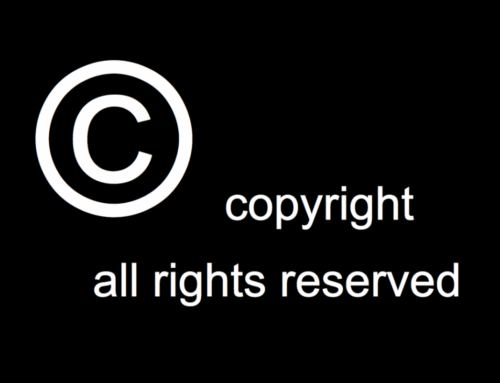The US Copyright Office has just announced a proposed new fee schedule. The Office proposes raising fees for a standard electronic copyright application from $55 to $75.
Fees for a “single” electronic application would go up to $55 from $35, and fees for a paper application would rise to $125 from $85. The already hefty fee of $800 for expedited processing will rise to $1,000 if the proposal is adopted.
The public may comment on the proposed changes before the new fee schedule is submitted to Congress. Comments must be submitted by July 23rd.
Given the proposed fee increase, it would be a good idea for you to promptly submit applications for copyright registration of any works you’ve been procrastinating on.
You might wonder why you should bother, especially if you’ve heard that in the US there’s no need to register your copyrights, because they’re automatically protected. While this is true, this is misleading.
Although your work is automatically copyrighted once it’s fixed in a tangible form, you can’t enforce this copyright, because you can’t bring a lawsuit for copyright infringement until you apply for or register the work with the Copyright Office.
Whether application is sufficient or a completed registration is required depends on the jurisdiction in which the case is filed.
If you register your copyright within five years after first publication of the work, the registration will constitute prima facie evidence (a rebuttable presumption) of the validity of the copyright and of the facts stated in the certificate of registration.
The term “publication” has a technical meaning in the copyright laws, but generally speaking, “first publication” occurs on the date on which copies of the work are first made available to the public.
Your copyright must also be registered before you can effectively protect your work under the Digital Millennium Copyright Act (DMCA). Under the DMCA, if you feel a website is infringing your copyright, you can send a takedown notice demanding removal of the infringing content.
If, however, the person who posted the material sends a counter-notification, you have only ten to fourteen days within which to file a lawsuit, or the infringing material will be put back up on the website. In reality, then, you can’t count on DMCA takedowns unless you’ve already registered the copyright in the work.
This is because, according to the Copyright Office website, it generally takes up to sixteen months from application to the date of registration for e-filings, and up to twenty-eight months for paper filings.
Special handling is available to speed up the processing time, but this is extremely expensive, currently costing $800 plus the $35 to $85 standard filing fee. Worse, there’s no guarantee of when the application will be processed. The Copyright Office merely agrees to try to process the application within five working days.
By promptly registering your copyrights, you also have more remedies available in case of an infringement. Normally, the remedies for copyright infringement are the recovery of actual damages (if they can be established) and court orders requiring all infringing copies to be destroyed and prohibiting future copying.
As you might guess, it is often difficult, if not impossible, to prove actual damages. If your copyright in the work was registered before the infringement occurred, though, you have the option of being awarded statutory damages rather than actual damages.
Statutory damages are no less than $750 and no more than $30,000, though if it can be established that the infringement was willful, they may be as high as $150,000, and damages for an innocent infringer may be as low as $200.
In addition, the court will not have the option of ordering an infringer to reimburse you for your attorney fees unless your copyright was registered before the infringement began.
If you register a work within three months of the date of first publication, the registration will be retroactive to the date of first publication, so it’s a good idea to register all of your copyrights within three months of publication.
Another benefit of registration is that you can sign up to have US Customs and Border Protection (CBP) seize imported goods that violate your registered copyrights. Unregistered copyrights are not eligible for this program.
Please feel free to contact us if you have any questions about registering or enforcing your copyrights.





